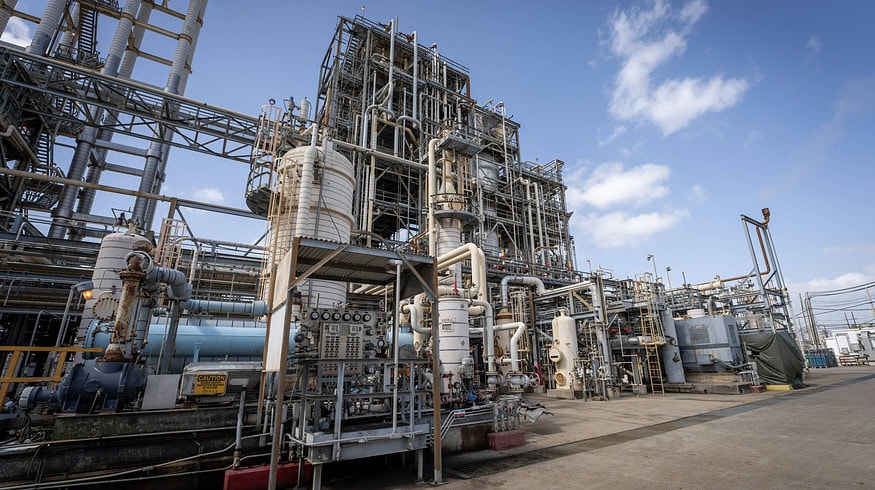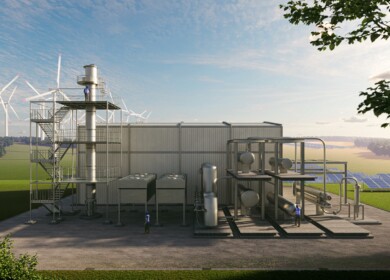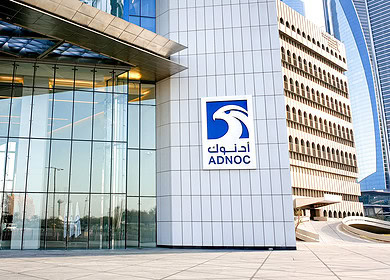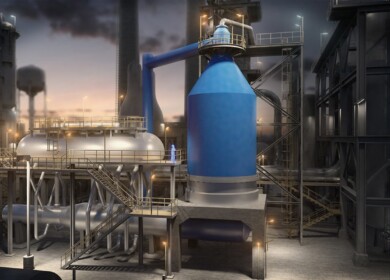Exxon and ADNOC forge alliance for world’s largest hydrogen plant

Abu Dhabi National Oil Co. (ADNOC) has agreed to acquire a 35% equity stake in Exxon Mobil Corp.’s proposed low-carbon hydrogen project in Baytown, Texas—a move that underscores ADNOC’s confidence in a project poised to become the world’s largest of its kind. However, the project, originally slated for 2028, has now been delayed by a year, with operations expected to start in 2029. This setback comes as Exxon navigates complex negotiations with the U.S. government over tax credits under the Inflation Reduction Act.
Exxon’s Baytown project is central to the company’s strategy for low-carbon energy solutions. Hydrogen, a clean-burning fuel, is seen as a critical component for decarbonizing heavy industries like steel and cement. The facility aims to produce 900,000 tons of low-carbon hydrogen annually, alongside over 1 million tons of ammonia—a versatile product that can be used as fertilizer or shipped as fuel. Despite its potential, the project’s future hinges on securing crucial government incentives, particularly the 45V tax credit, which currently favors green hydrogen—produced using renewable energy—over Exxon’s blue hydrogen, which is derived from natural gas but captures 98% of CO2 emissions. Exxon argues that these incentives should be technology-agnostic, focusing instead on the actual reduction of carbon emissions.
ADNOC’s investment marks its second major foray into the U.S. this year, following a stake acquisition in NextDecade Corp.’s liquefied natural gas project in Texas. ADNOC is positioning itself as a leader in low-carbon solutions, even as it continues to explore new opportunities in traditional hydrocarbon markets. The UAE’s national oil company has been proactive in aligning its investments with the country’s broader goal of achieving net zero emissions by 2050.
The partnership between Exxon and ADNOC has also attracted significant interest from other industrial giants. Japan’s largest power producer, JERA Co., signed a non-binding agreement earlier this year to purchase half of the ammonia produced at Baytown. Additionally, Air Liquide SA, a global leader in gases and services, has expressed interest in utilizing its pipeline network to support the project. These partnerships are a testament to the momentum building around Exxon’s vision, despite the regulatory uncertainties that have pushed the final investment decision to 2025.
Exxon’s CEO, Darren Woods, has been vocal about the challenges the project faces, particularly regarding government support. Without adequate tax incentives, Woods hinted that the project could be at risk. He emphasized the need for a policy framework that supports all forms of low-carbon technology, rather than favoring one approach over another.
ADNOC’s involvement not only bolsters the project’s credibility but also signals a broader trend among Gulf oil producers to diversify their portfolios with low-carbon technologies. While the path forward is fraught with challenges, the collaboration between Exxon, ADNOC, and other industry leaders reflects a shared commitment to pioneering the next generation of energy solutions.
Enjoyed this story?
Every Monday, our subscribers get their hands on a digest of the most trending agriculture news. You can join them too!
















Discussion0 comments